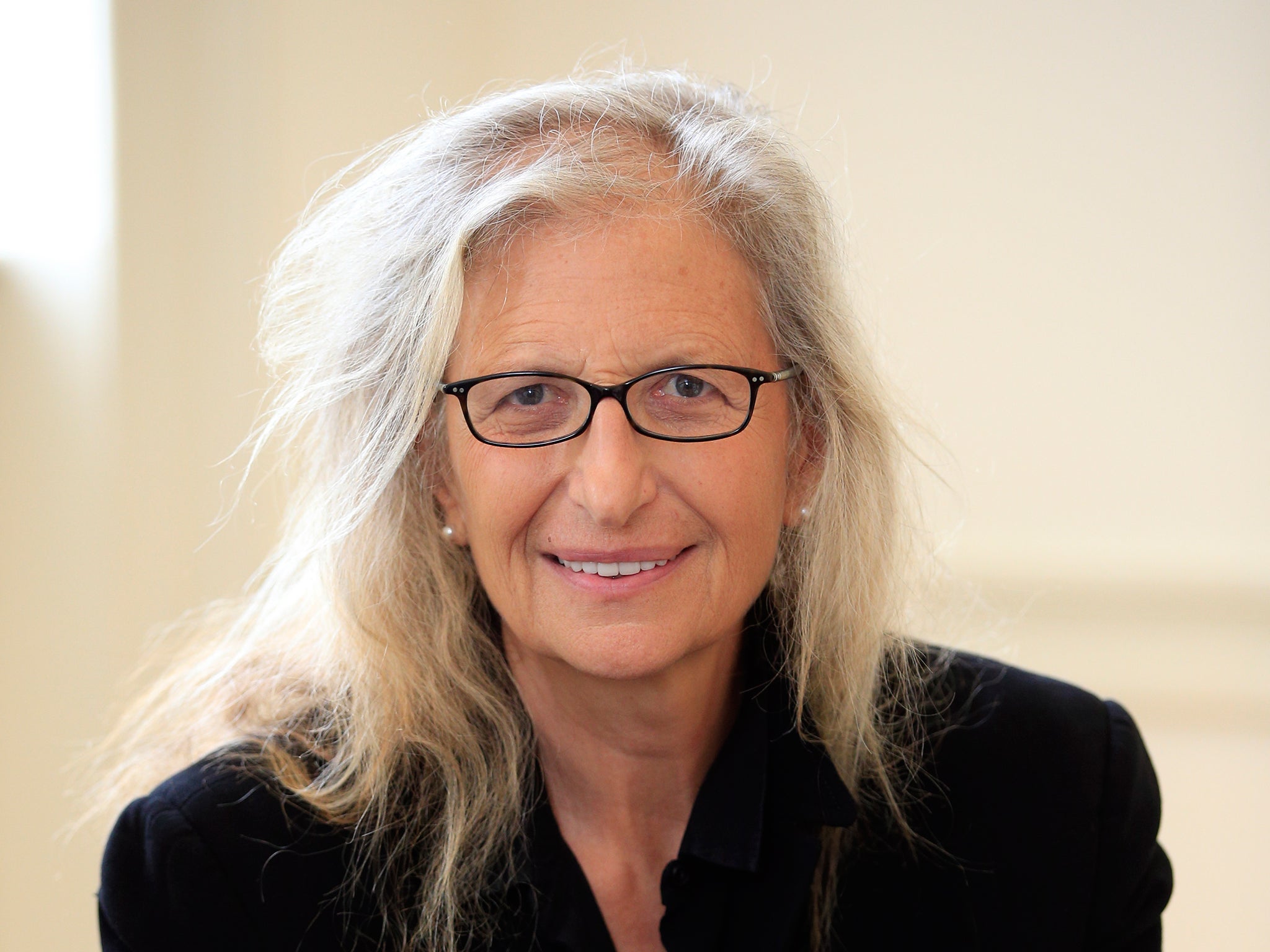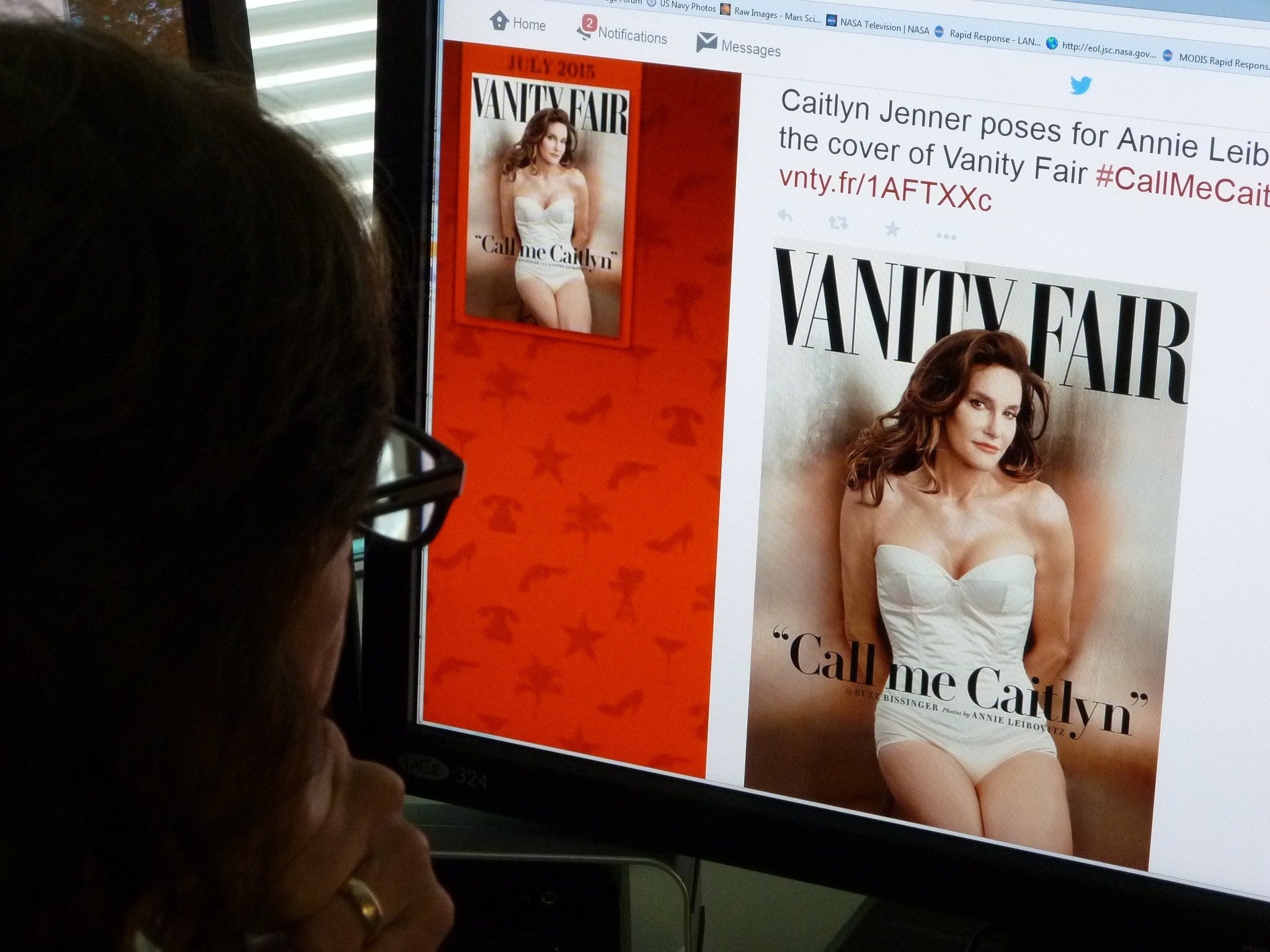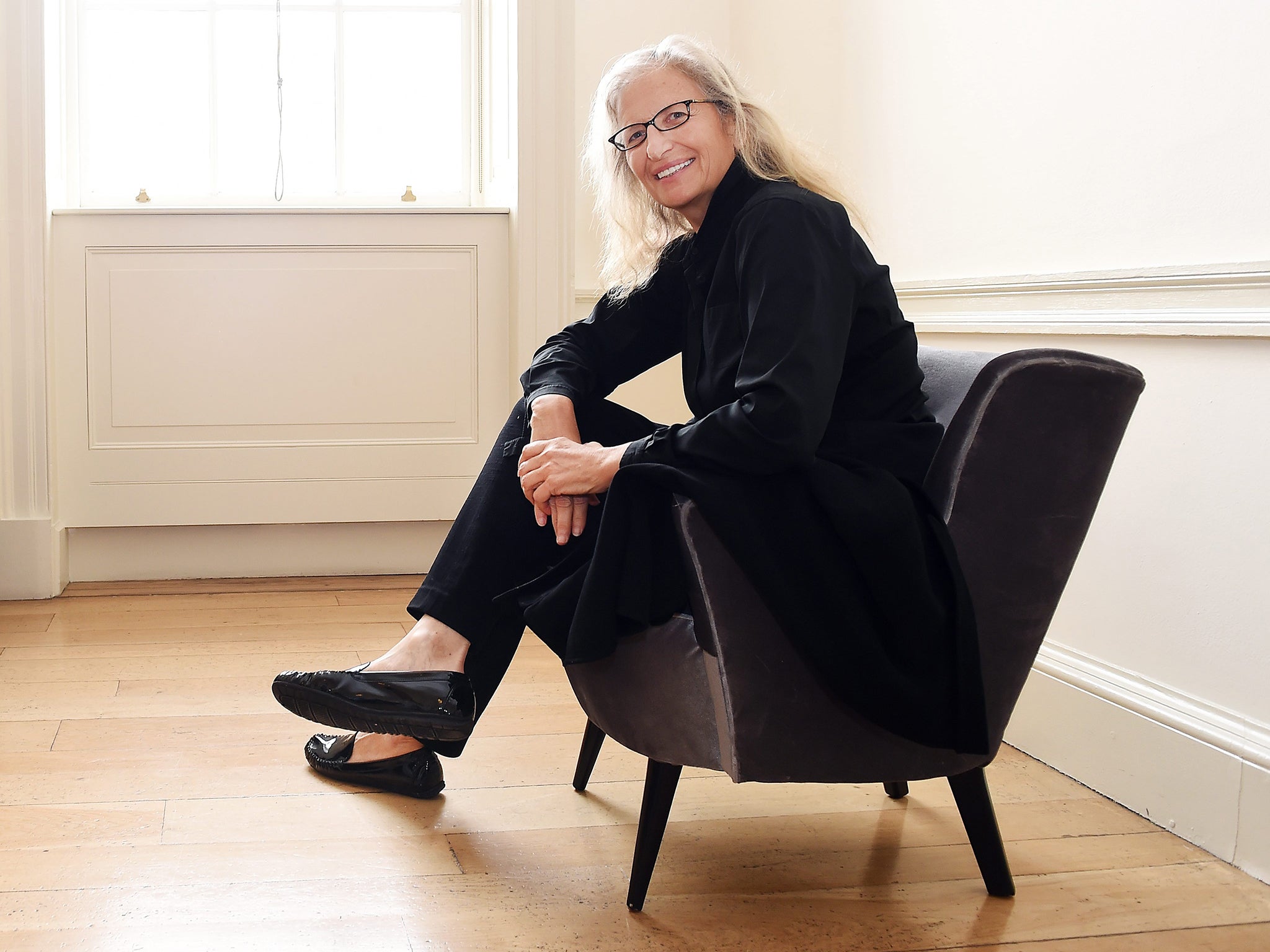Caitlyn Jenner Vanity Fair photographer Annie Leibovitz says 'retouching' means magazine covers are not photographs
The celebrity snapper is behind iconic cover shoots of Demi Moore, John Lennon and Yoko Ono

Your support helps us to tell the story
From reproductive rights to climate change to Big Tech, The Independent is on the ground when the story is developing. Whether it's investigating the financials of Elon Musk's pro-Trump PAC or producing our latest documentary, 'The A Word', which shines a light on the American women fighting for reproductive rights, we know how important it is to parse out the facts from the messaging.
At such a critical moment in US history, we need reporters on the ground. Your donation allows us to keep sending journalists to speak to both sides of the story.
The Independent is trusted by Americans across the entire political spectrum. And unlike many other quality news outlets, we choose not to lock Americans out of our reporting and analysis with paywalls. We believe quality journalism should be available to everyone, paid for by those who can afford it.
Your support makes all the difference.Annie Leibovitz, the celebrity photographer behind some of the most iconic cover shoots of the past three decades, does not consider glossy magazine covers as photographs because of the extensive digital “retouching”.
The American snapper – whose covers include the naked and pregnant Demi Moore, John Lennon and Yoko Ono in an embrace, and transgender reality star Caitlyn Jenner – said none of the subjects in her new exhibition would be digitally enhanced.

Speaking at the launch event of Women: New Portraits the 66-year-old in London, Leibovitz said: “I think we are smart as an audience. We know when something has been screwed around with, we just know."
She said: “I don’t think there is a cover for Vanity Fair or Vogue that goes out that is not retouched. I don’t know whether I consider the covers photographs, it’s very close to advertising if you ask me.”
The exhibition, which opens at Wapping Hydraulic Power Station in January, will feature a series of images including comedian Amy Schumer and tennis players Venus and Serena Williams.

Her own photographs of Lena Dunham for Vogue last year came under fire for digital enhancement. She said Photoshop was accepted now but for the exhibition, she said: “If there was any retouching it was to the background.”
The show will also include a recent self-portrait of the photographer with her three daughters and an image of former US Olympic athlete Bruce Jenner, who has transitioned into a woman.
Leibovitz shot the first images of Jenner as a transgender woman for the July edition of Vanity Fair which had the cover-line “Call me Caitlyn” and generated headlines around the world.
She did not digitally enhance that shoot. “It was so important that I didn’t retouch it,” she said. “I thought on some level she was already retouched… She was totally rebuilt, so I didn’t.”
Leibovitz started as a press photographer for Rolling Stone and became the magazine’s chief photographer in 1973. A decade later she stared work for Vanity Fair and Vogue.
“There are lots of options available today, digitally,” she said, before adding: “If you’re a journalist you have to toe the line, but as a portraitist there’s leeway.”
Manipulating photographs had gone on “for a long time” pointing to British photographer Cecil Beaton’s work. While researching an introduction to a book of his work, she saw images he had changed to make a wealthy socialite thinner.
The updated project on women wanted to reflect a change in women’s roles today. “It is easier to find women in different fields now. It really is happening; we are much more out there.”
Leibovitz became the first American to take a portrait of Queen Elizabeth II in 2007, which became controversial after the BBC claimed the monarch had walked out of the shoot in a huff when in fact she had not.
After London, the exhibition, commissioned by Swiss banking group UBS, will travel across the globe stopping at a further nine cities including Tokyo, San Francisco and Hong Kong.
Join our commenting forum
Join thought-provoking conversations, follow other Independent readers and see their replies
Comments